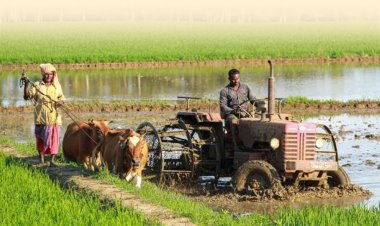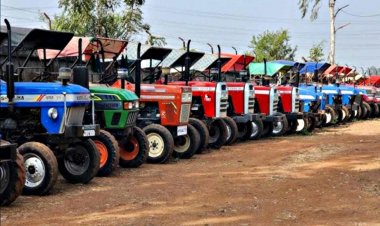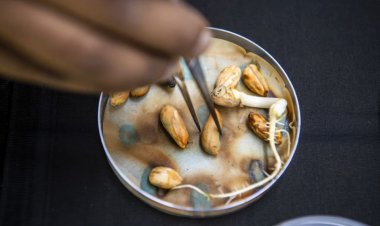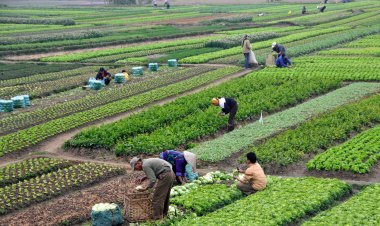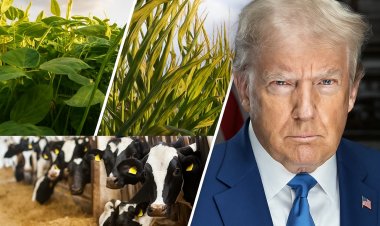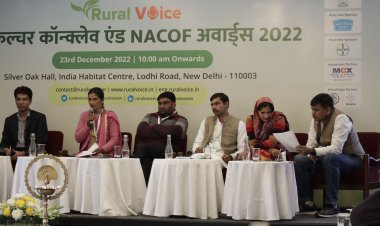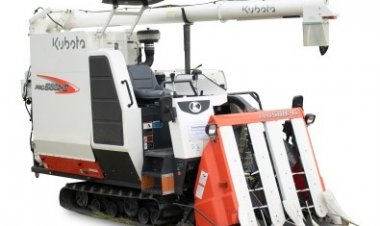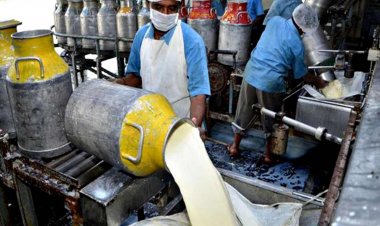Climate-smart wheat variety developed by ICAR will beat the heat
IARI has registered HD-3385 variety under Protection of Plant Varieties and Farmers Rights Authority (PPVFRA). It has also licenced this variety to DCM Shriram Limited owned Bio-seed for multi-location trial and seed multiplication, which is being carried out in the current rabi season
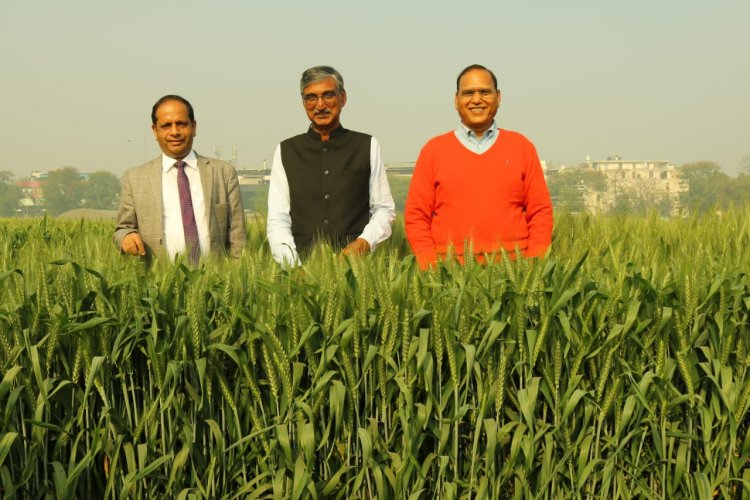
The effect of climate change is visible on Indian agriculture. This is the reason why in March last year there was a huge drop in wheat production due to sudden increase in temperature. As a result, despite the ban on wheat exports, its prices in the domestic market increased by up to 50 per cent against the minimum support price (MSP).
Government procurement of wheat was stuck at only 179 lakh tonnes against the target of 444 lakh tonnes due to fall in production and market prices being higher than the MSP. The stock of wheat in the central pool stood at 154.44 lakh tonnes on February 1, the lowest level in six years for this date.
The concern does not end here. At present the minimum and maximum temperatures in the wheat producing areas are running three to five degree Celcius more than normal. Due to this, the possibility of adverse effects on this year's wheat crop is also increasing. The forecast is similar in the coming days and this is the time for the process of earing, grain formation and hardening of wheat. Abnormal temperature rise during such times can damage the crop.
This condition of temperature being above normal in February-March is indicating that the crisis of climate change may persist now. In such a situation, the only option is to find ways and implement them to save the winter crop like wheat from the crisis. To solve this problem, the Indian Council of Agricultural Research (ICAR) team is working on the option of advancing the sowing time of the crop from the present time.
Wheat is sown in the first fortnight of November in Punjab, Haryana and Madhya Pradesh. Wheat is sown from mid-November to December in Uttar Pradesh after harvesting of paddy and sugarcane. On this basis, farmers are currently sowing early and late varieties of wheat.
If the sowing duration of wheat crop of about 140-145 days is done around October 20, it can survive heat stroke. Due to this, the entire process of earing, grain formation and ripening of wheat will be completed by the third week of March and harvesting can be done at the end of March. That is, the crop will be protected from the damage caused by abnormal rise in temperature.
How to resolve this problem
Dr. Rajbir Yadav, Principal Scientist of the Indian Agricultural Research Institute (IARI), explains that if wheat is sown in the beginning of November, normally the heading process in plants starts in 80 to 95 days. If it is sown in October, then the earhead will come out in 70 to 75 days. Due to this, the productivity of the crop will be affected as the plants will not get time to develop fully. Therefore, only earlier sowing will not solve the problem.
The new variety of wheat has a solution to this problem
IARI scientists have developed a new variety of wheat using mild vernalisation requirements. This variety requires a chilling period before flowering. After sowing this variety on 20-25 October, the process of heading takes place after 100 to 110 days. After that pollination takes four to five days. The plant then gets full time in February for the process of grain formation and hardening.
During this process, the temperature should remain around 30 degrees for a period of 30 to 40 days. During this, the nutrients available through the stem and leaves of the plant are used for filling and hardening of the grain in the earhead. This early sown wheat variety of IARI gives full time to the plant to develop.
Its stem is stronger. Yadav says that despite the early sowing, the earhead (Bali) in this new variety does not come out early, which makes the plant stronger and due to this, its grains also keep more weight. Also, it is capable of withstanding heat and lodging.
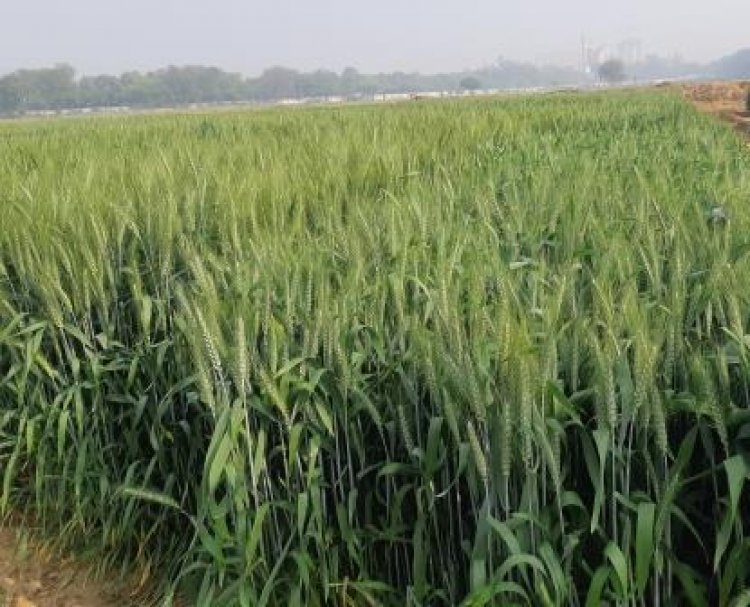
What is special in new varieties
The team of IARI scientists have used special genes in three varieties for mild vernalisation requirements which prevent premature flowering and heading. The first variety is HDCSW-18 which was officially released and notified in 2016. Its yield is more than seven tonnes per hectare. The currently popular varieties HD-2967 and HD-3086 have a yield of 6 to 6.5 tonnes per hectare. The height of their plants is 105 to 110 cm while the height of common varieties is 90 to 95 cm. Due to more height they are more prone to lodging and bending which can result in drop in production.
The second variety is HD-3410 which was released in 2022 and has a yield up to 7.5 tonne per hectare. At the same time, the height of its plant is 100 to 105 cm. But the third variety, HD-3385, looks most promising. It has a plant height of 95 cm with a yield of 7.5 tonnes, which greatly reduces the possibility of lodging and bending of the crop.
The thickness of the stem of this type of plant is also more. In the trial of IARI, this year sowing of this variety has been done on 22 October, 2022. Right now, it is in the pollination stage, while the emergence of earhead has not even started in the wheat crop sown in the normal time.
IARI plan to make it available for farmers
IARI has registered HD-3385 variety under Protection of Plant Varieties and Farmers Rights Authority (PPVFRA). It has also licenced this variety to DCM Shriram Limited owned Bio-seed for multi-location trial and seed multiplication, which is being carried out in the current rabi season.
IARI Director Dr. A.K. Singh told Rural Voice that this is our first such effort, in which public-private partnership has been done. Also, due to the registration of this variety under PPVFRA, our intellectual property rights are also protected.
Dr. Himanshu Pathak, Director General, Indian Council of Agricultural Research (ICAR), told Rural Voice that this is the first instance of commercialisation of a variety developed in the public sector through the private sector. In this way, newly developed variety will be available to the farmers faster. Farmers will benefit from the technology of the public sector.
Along with this, he said that under the condition of the license, the private company will pay a certain amount as royalty to ICAR on the sale of per kilogram of seeds. This will be used for new research.
Due to this, the country will benefit from higher production of wheat through climate smart varieties. Pathak said that in future, if any other institution or company wants to take license for production and sale of this variety of seeds, then it can get it on the existing conditions.



 Join the RuralVoice whatsapp group
Join the RuralVoice whatsapp group

















